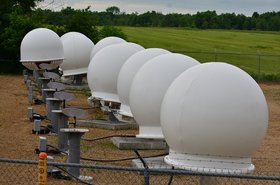A US appeals Court has upheld the Federal Communications Commission (FCC) decision to allow Elon Musk's SpaceX to deploy its Starlink satellites at a lower orbit.
The decision was first approved last year by the FCC in April 2021 as SpaceX pushed on with plans to offer space-based broadband Internet services and granted permission to fly 2,824 satellites at a lower altitude.
The decision to uphold the FCC's approval was made on August 26 by the appeals court, as reported by Reuters.
However the FCC's decision last year faced backlash from rival satellite providers including Viasat, Dish and Amazon.
Viasat argued that the decision to allow SpaceX to deploy more satellites could see collisions with its own satellites. But the court ruling noted that "Viasat operates only a single satellite that flies close to SpaceX’s constellation."
The court also called Viasat's concerns over damages as "speculative" with Viasat asserting that SpaceX’s satellites may collide with other orbiting bodies, in turn causing damage to its satellites.
Since 2019, SpaceX has launched close to 3,000 of its low-earth orbiting Starlink satellites. Its satellites are responsible for the majority of satellite near-misses, though most are between its own machines. While most satellite avoidance measures are largely manual operations, SpaceX claims its machines have automatic avoidance capabilities.
Last week the company teamed up with T-Mobile to provide mobile signal connectivity from space with the target of leaving no area without coverage in the US.




